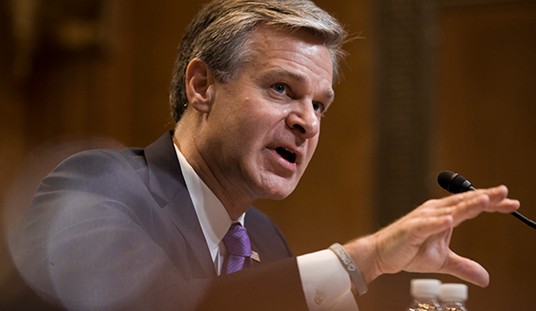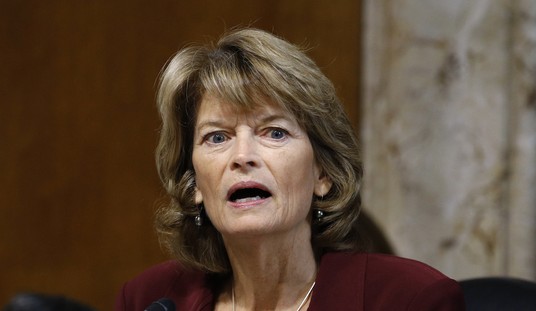Remember the Halbig case? If not, catch up right now by re-reading this post from January, written after a D.C. district court judge ruled in Obama’s favor. O-Care is a famously complex law but the lawsuit that could end up demolishing it is surprisingly simple. In a nutshell, there’s a line buried deep in the statutory text that says federal subsidies for insurance premiums will be available to anyone who buys a plan on “an Exchange established by the State.” Question: Does Healthcare.gov, the exchange built by the federal government after 34 states refused to build their own exchanges, qualify as an “Exchange established by the State”? Or do only state exchanges qualify? If it’s the latter, then millions upon millions of people who’ve signed up for O-Care through Healthcare.gov since October in the expectation that Uncle Sam will be paying part of their bill are in for a nasty surprise. The only fix that’s available (unless His Majesty tries some executive gambit, of course) is for Congress to amend the statute so that subsidies are available on the federal exchange too, but what are the odds of the House GOP agreeing to that? If the D.C. Circuit, which is set to rule any day now on the appeal of the earlier ruling, sides with the challengers against O, consumers will be forced to either come up with the money for their premiums themselves or drop their coverage. And if most of them choose to drop coverage, leading to a mass exodus of healthy people from various insurance risk pools, suddenly the White House is facing a death-spiral problem where hiking premiums on the remaining enrollees is the only way to pay for all the sick people still in the pool. That’ll lead to more dropped coverage, which means even higher premiums, and then it’s spiralmania.
It’s a magic bullet, aimed right at the heart of ObamaCare. What will the D.C. Circuit do? TPM wonders:
The challenge was initially written off by some as a fool’s errand because there’s a lack of evidence that the Democrats who crafted and passed the Affordable Care Act intended to block subsidies on the federal exchange, which was designed as a backstop on behalf of the states. (They’ve signed a brief saying as much.) But the challengers seized on an ambiguity in the language of the statute which says the subsidies are to be provided by “an Exchange established by the State.”
“If the legislation is just stupid, I don’t see that it’s up to the court to save it,” Judge A. Raymond Randolph said during oral arguments in March.
Randolph, a George H.W. Bush appointee, said the text of the statute “seems perfectly clear on its face” that the subsidies are confined to state-run exchanges. Carter-appointed Judge Harry T. Edwards slammed the challengers’ claims as “preposterous.” So the deciding vote appears to be with George W. Bush-appointed Judge Thomas B. Griffith, who wasn’t resolute but sounded unconvinced of the Obama administration’s defense, saying it had a “special burden” to show that the language “doesn’t mean what it appears to mean.”
In a way, this is an analog to Obama’s power grab on immigration, which he defends as necessary because Congress is paralyzed. Will the D.C. Circuit read the statute as it’s written and leave it to Congress to resolve the ambiguity over “state” exchanges or, knowing that Congress won’t do a thing to resolve it, will the court feel obliged to minimize disruption to America’s new insurance regime by interpreting the word “state” broadly? The lower court reasoned that the federal ObamaCare exchange isn’t really a “federal” exchange, it’s an amalgamation of 34 different state exchanges that the federal government established on behalf of each of those 34 states. In that sense, the federal exchange is a “state” exchange (or a group of state exchanges) and therefore its customers are eligible for subsidies. Law prof Jonathan Adler has led the charge in arguing the opposite, that the whole reason the statute was drafted the way it was is because Congress wanted to give states an extra incentive — namely, subsidies for its residents — to set up their own individual insurance exchanges. If a state refused to comply and forced the feds to set up an exchange on its behalf instead, its residents would be punished by having their eligibility for subsidies removed. (Adler wrote a thorough reply to the district court’s ruling for WaPo back in March.) The D.C. Circuit needs to choose between those two interpretations. And depending upon how they rule, SCOTUS may get a crack at it — which, per Jonathan Turley, is potentially also bad news for O-Care fans:
But the D.C. Circuit Court may see things quite differently, especially in light of recent Supreme Court opinions holding that the Obama administration has exceeded its authority and violated separation of powers.
In Michigan vs. Bay Mills Indian Community, for example, Justice Elena Kagan noted that “this court does not revise legislation … just because the text as written creates an apparent anomaly as to some subject it does not address.” In Utility Air Regulatory Group vs. EPA, Justice Antonin Scalia, writing for the majority, stressed that “an agency has no power to tailor legislation to bureaucratic policy goals by rewriting unambiguous statutory terms.” And a third strike came last week in National Labor Relations Board vs. Canning, when the Supreme Court unanimously found that President Obama had violated the Constitution in circumventing Congress through his use of recess appointments…
Moreover, a ruling against the administration would mean that Obama has been responsible for ordering what could amount to billions of dollars to be paid from the federal Treasury without authority. And it would mean the administration has committed yet another violation of the separation of powers.
It’s impossible for me to believe that the Supremes generally and John Roberts specifically, having eaten boatloads of crap from the right for upholding ObamaCare on the challenge to the individual mandate, are now going to pull a “never mind” and torch the whole thing because of a drafting ambiguity, but hope springs eternal for separation-of-powers aficionados like Turley. So much for the legal angle to all this. Here’s the political angle: What happens if the D.C. Circuit does nuke the subsidies eligibility for federal-exchange consumers? Would the House GOP even consider a bill reinstating those subsidies in exchange for other concessions of some kind? Before you say “hell no,” bear in mind that there’ll be a lot of voters out there PO’d that they’ve just lost their sugar from Uncle Sam and a lot of Democrats whispering to them that they could have that sugar back if only the damned Republicans didn’t want to see them suffer. Plenty of hay could be made before the midterms. Phil Klein, who has more faith in Boehner and crew than me, thinks there’s no way House Republicans would dare cave on subsidies, certainly not before SCOTUS has ruled on this at least. Hopefully he’s right — emphasis on “hopefully.” But maybe it’s all moot: If the GOP held out and refused to reinstate the subsidies, His Majesty would be tempted to issue some sort of dubious executive order (say, right around November 1st) proclaiming that the subsidies will be reinstated under HHS’s authority. That might be illegal, but even if it is, what’s anyone going to do to stop him? And even if there is a way to stop him by suing him over it, how will that stop him in time to prevent him from reaping the benefits at the polls on election day? Gulp.








Join the conversation as a VIP Member